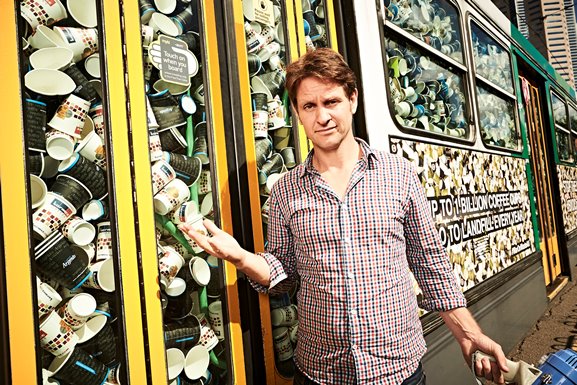'War on Waste'.
Keo Films Australia’s factual series War on Waste was the stand-out Australian show on the ABC in the first half of this year, together with series two of in-house production You Can’t Ask That.
Matchbox Pictures’ drama Seven Types of Ambiguity performed strongly on iview while Stargazing Live in Australia, a co-production with the BBC and FremantleMedia Australia, resonated in regional areas and on social media.
“ABC had a strong first half of the year and we’re thrilled that audiences have responded to our unique Australian content across digital, social and broadcast platforms,” Rebecca Heap, ABC TV head of programming and digital, told IF.
“War on Waste has been particularly impactful, not only because it was a terrific viewing experience but also because it harnessed Australia’s desire to make a difference. It’s been incredible to see the groundswell of action triggered by the program – right across the country we’ve seen people inspired, sharing the conversation online, and implementing changes in their everyday lives.
“ABC stories continue to be an important part of the lives of our viewers from drama, to news and social impact content, to children’s entertainment, and it’s a privilege for us to play such a vital role.”
ABC1’s primetime share for the year-to-date is 9.7 per cent, a slight decrease from 10.1 per cent for the same period last year, a very good result given the intense competition from the commercial broadcasters.
Presented by The Chaser’s Craig Reucassel, War on Waste ranked at No. 1 in its timeslot with a share of 17.1 per cent, attracting 1.6 million viewers across ABC1 and iview. ABC TV’s Facebook video about banana waste reached more than 19 million people while a video about coffee cup waste reached nearly 6 million. To date there have been more than 22,400 #WarOnWasteAU tweets and tweets with the hashtag have reached more than 19 million people.
The broadcast audience for the second series of You Can’t Ask That, which featured the first-hand experiences of diverse groups including centenarians, children of same sex parents, problem gamblers, blind people, refugees and suicide attempt survivors, was up by 15 per cent on the first series.
The series was again one of the most popular on iview with an average audience of 87,000 per episode. To date there have been more than 3.5 million plays across both series. On Facebook, ABC iview’s video about people with Down Syndrome reached a staggering 90 million people.
All six episodes of Seven Types of Ambiguity were available to binge on iview, delivering an average audience of 153,000 per episode on that platform. Online viewing accounted for 13 per cent of the total audience which averaged at 1.2 million per episode including encores, regional and iview.
More than 2.7 million viewers tuned in to the ABC’s Stargazing Live coverage during April. The program performed strongly in regional areas, particularly Southern NSW, where it had an 18 per share.
ABC TV Facebook live-streamed Stargazing Live and Back to Earth each night and the streams reached an average of 180,000 people. There were more than 17,000 #StargazingABC tweets and a further 4,300 #StargazingQuestions submitted for the Back to Earth panel.
Meanwhile ABC Kids improved its position as the No. 1 channel for kids aged up to four, with a share of 47.7 per cent, up 1.5 share points year-on-year. ABC ME continues as the top channel for children aged 5-12 during daytime and has improved its primetime share, up by 0.8 of a share point.


